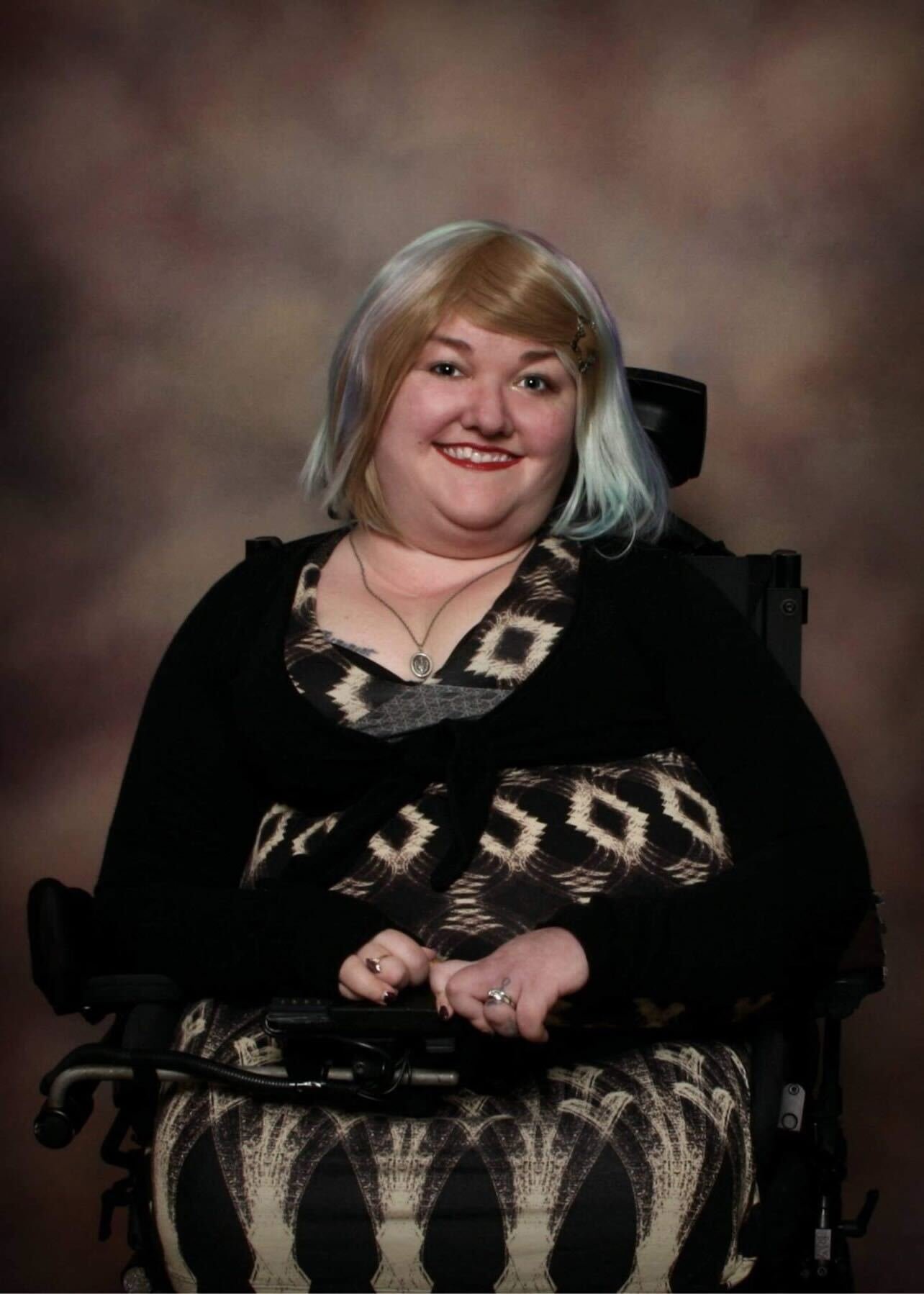Navigating Employment with a Disability: A Personal Journey
By: Tonya Cass
Over the years I have faced many hurdles in obtaining and maintaining employment while having a disability. I’d be thrilled to get the chance to share a few with you! First and foremost, my name is Tonya, and my family (my husband and our furry children) and I live on Vancouver Island. Due to a degenerative condition called Spinal Muscular Atrophy, I have spent my entire life confined to an electric wheelchair.
Starting the Journey at Age 16
I always aspired for the independence of having a job, and at age 16 I had the good fortune to be employed by my neighbourhood Disability Resource Center to instruct their clients in resume writing. Finding a job that was already focused on hiring individuals with disabilities was a great place to start. They were always ready and happy to assist me if I needed it, and they were very understanding of whatever accommodations I might have needed. All my positions up until ten years ago were focused on businesses and organizations that catered to the disabled. In my opinion, starting in this type of employment was a fantastic chance to network with like-minded individuals, get valuable experience and transferrable skills, and feel supported in with my disability requirements. After moving to a different town where there were fewer opportunities to work with and for people with disabilities, I was able to land a job at a telecommunications company. I’ve now been working for that company for nine years and six months, and despite the fact they weren’t used to employing someone with my level of physical disability, they have been helpful every step of the way.
Advocating for Your Needs
Obstacles are something those with disabilities face every day. It might feel overwhelming to find employment in a company that is not disability-centered because you must be able to effectively advocate for the needs you will have while employed there. One of the best examples I can give of this is how, during my initial interview for the job, I made it very clear to the recruiting managers that I would require the ability to bring a personal care aide along to assist me throughout my shifts. Not only would I need them for personal care, such as helping me eat, but I would also need their assistance typing on the computer, and other work tasks. I took the time to explain that this would not be a financial concern for them and that my care aides would have no problems adhering to any business requirements. I remember joking that it was like the company was getting a two-for-one deal. I left that interview feeling great, proud of myself for advocating for my needs, and a week later I got the call that I had been hired. I made plans with my care aides to have them assist me daily while I was in training and working full-time.
Overcoming Challenges During Training
I’ll never forget my first day of training. I arrived with my care aide, and not long after the class began, one of the trainers approached her and asked who she was. The information about my care aides was lost in translation, so they hadn’t been informed of the accommodation. When we had to go meet with HR and go through the who, what, when, where, and why of my needs again, I remember being terrified that I would lose my job before it had even begun. When the HR representative was so accommodating and willing to work with my needs, my anxieties were relieved. At that moment, I knew I had chosen the right place to start my career. Everyone was accommodating, kind, and understanding and both myself and my care aides were welcomed into the workplace. Over the years my disability has since developed and changed, and the business has always been open to listening to me and assisting me in overcoming any obstacles I have encountered related to working with my disability. I feel that the business has always been supportive because I have never been afraid to be an advocate for my needs.
The Power of Asking for What You Need
The most important piece of advice I can provide to someone looking to enter the workforce but who might be hesitant due to needs or requirements related to their disability is do not be scared to ask for what you need. Most of the time, until they are brought to the company’s attention, items are overlooked that are necessary to make life easier for someone with a disability. Speaking up for your needs can help with many issues like; getting access to readily accessible restrooms, voice dictation software, and an understanding of special accommodations you may require, to name a few examples.
Breaking Down Barriers
Over the years, I’ve learned that most people genuinely want to assist and make accommodations and that occasionally, the walls and barriers we construct around ourselves because of fear of failure are what hinders us from successfully achieving our goals and dreams. Don’t ever be afraid to ask for what you need, go out and grab it!
We’re live in Ottawa! Join our beta here if you’re in the city. For those outside of Ottawa, join the waiting list here so we know where to expand next!
Tonya Cass works as a Quality Expert in telecommunications, inspiring agents to have engaging conversations with their customers. She has always been incredibly passionate and committed to bettering the customer experience. She and her husband also own a small photography business, highlighting the beauty of the world around them.
LinkedIn: https://www.linkedin.com/in/tonyamcass11/


